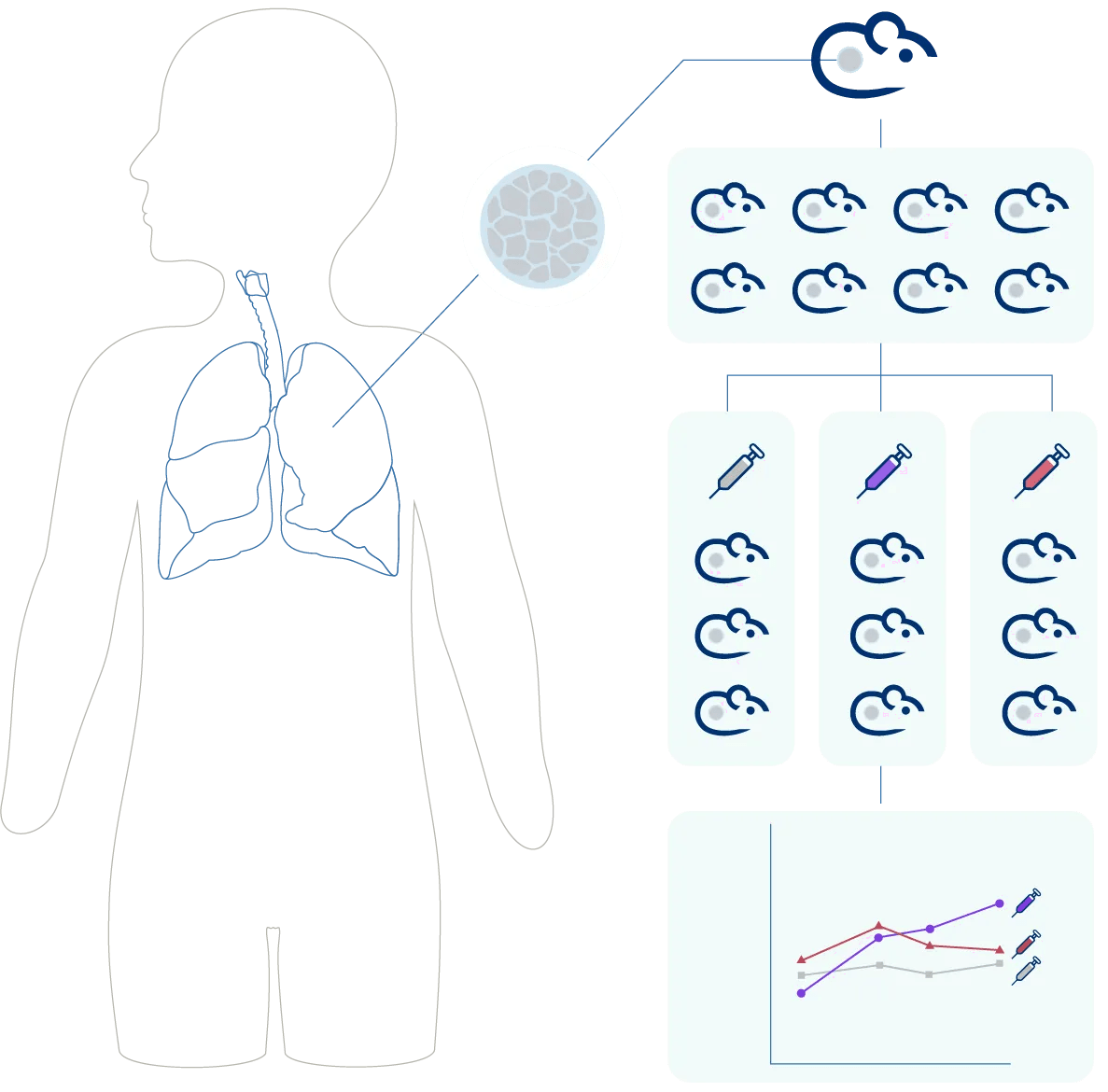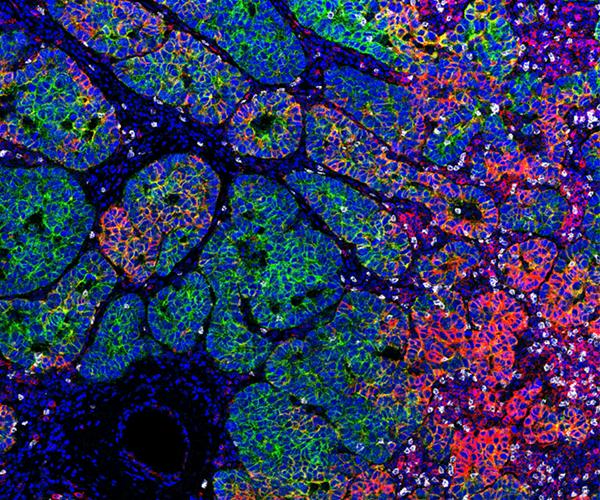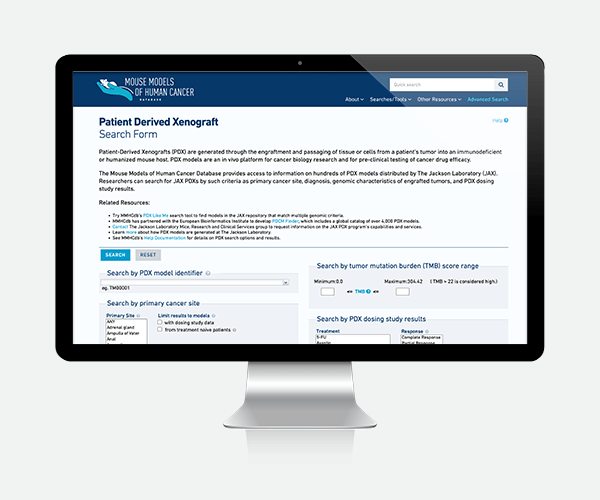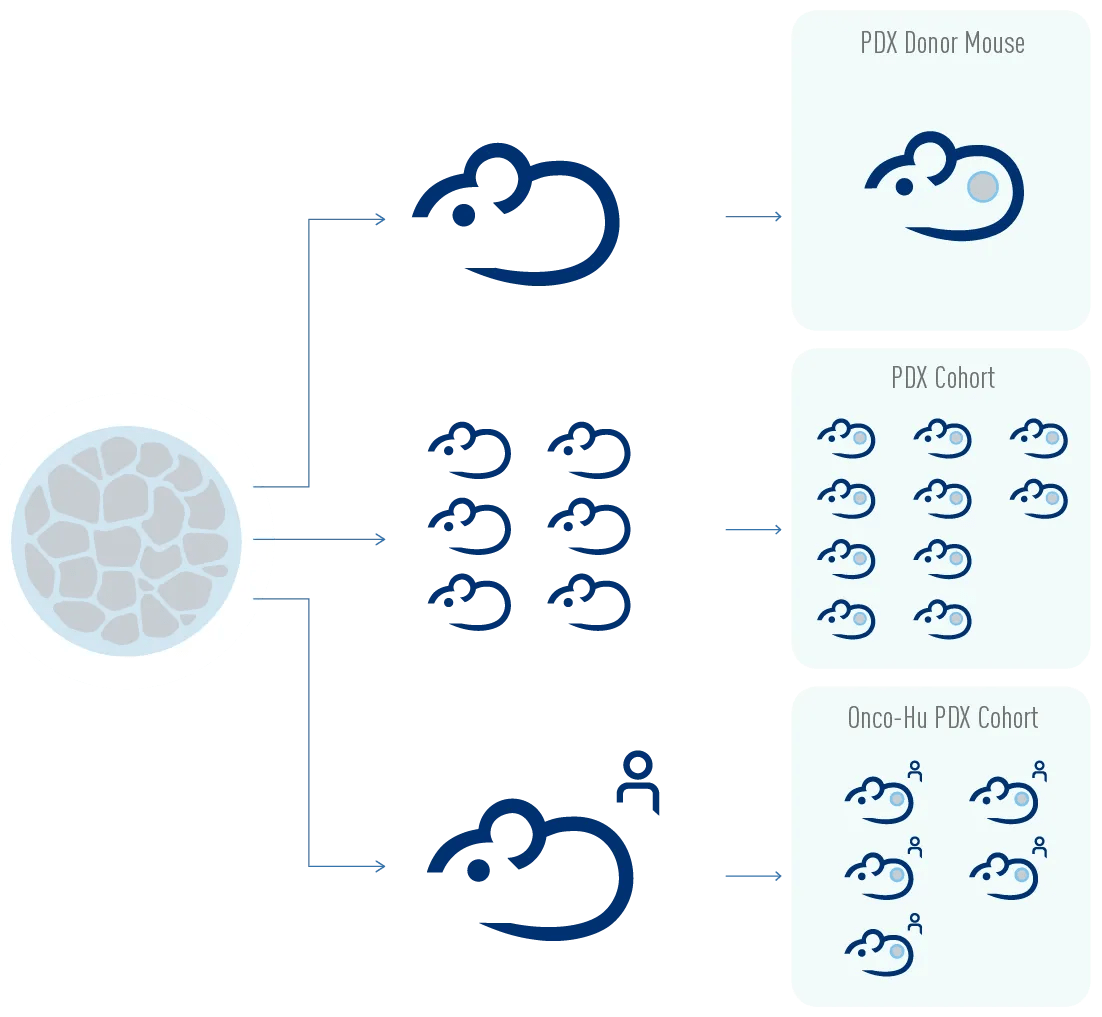An alternative to cell-line xenografts, patient-derived xenograft (PDX) models provide relevant and translatable animal models useful for investigating human cancer biology. Our PDX program provides tumor models at lower passages than other providers, more accurately reflecting clinical samples than other PDX resources. JAX enables the development of treatment strategies guided by specific tumor characteristics.
Predictive Accuracy: Provides a more predictive platform for assessing drug responses compared to traditional cell-line xenografts by closely replicating patient tumor biology
Drug Development: Useful for preclinical drug evaluation by helping to identify promising therapeutic candidates and understand their mechanisms of action before clinical trials
Study of Drug Resistance: Improve cancer treatment outcomes by allowing researchers to investigate mechanisms of drug resistance and formulate targeted strategies


PDX Biospecimens
JAX is the premier provider of PDX frozen tumor fragments and FFPE slides for evaluating tumor structure and composition to best support your drug discovery research.

PDX & Mice Models
JAX offers a wide variety of PDX-Engrafted mice that can be purchased as a donor mouse or in tumor bearing mice for study.

Preclinical Studies
Don't have access to a vivarium? JAX offers tailored efficacy testing studies for preclinical drug development, potentially saving you months of pre-study preparation time.

JAX offers a variety of biospecimens to support cancer research and help determine which tumor will fit best for your research. We offer PDX frozen fragments, PDX unstained slides, and AML splenocytes, which are useful for target validation.

Our expansive PDX collection includes a wide range of patient-derived xenograft models representing diverse, clinically-relevant tumor types and genetic profiles. These models are available for in vivo efficacy testing through JAX® Preclinical Research Services or can be distributed to your facility for research use.

This database has integrated data on tumor frequency, incidence, genetics, and pathology, as well as patient information, making it a valuable tool for cancer research. Unlike other providers which require direct contact to access their databases, JAX offers immediate, unrestricted access to facilitate rapid research progress and collaboration.
Our In Vivo Preclinical Services offer preclinical studies using PDX models. PDX-engrafted mice provide a fast and cost-effective platform to simulate trials, evaluate multiple drugs alone or in combination, and generate predictive data.
| Study Type Name | Description | PDX Model Options | Mouse Model Option | |
|---|---|---|---|---|
| PDX Live™ | Choose from a select list of readily available PDX tumors for engraftment on a mouse or let JAX conduct your study to get results for your therapeutic candidate | Select one of 15 available PDX Live™ models | See PDX Live™ Studies | |
| Onco-Hu™ Studies | Engraft your PDX of choice into a humanized mouse model to simulate the human immune system and tumor microenvironment | Choose from over 350 select PDX tumors | Humanized Mice such as | See Onco-Hu™ Studies |
| PDX Efficacy Studies | Choose any PDX tumor, cryopreserved or not, for engraftment. JAX study directors can help you choose which model, tumor, or study design best suits your research | Choose from over 350 select PDX tumors | Any NSG™ Portfolio Model | See PDX Efficacy Studies |
While JAX can facilitate your study using your preferred PDX and mouse models, it is not a requirement. If your team prefers to conduct the work independently, we offer several support options to assist you throughout your research process.

This webinar is designed as a practical guide for constructing the optimal preclinical cancer model for your research. We discuss selecting among xenografts, mouse models, and immune cell humanization approaches based on specific research questions and data requirements. If you're gearing up to evaluate your drug candidates in clinically-translatable, in vivo models, this webinar is for you.
Not what you're looking for?
Visit our Resource Hub